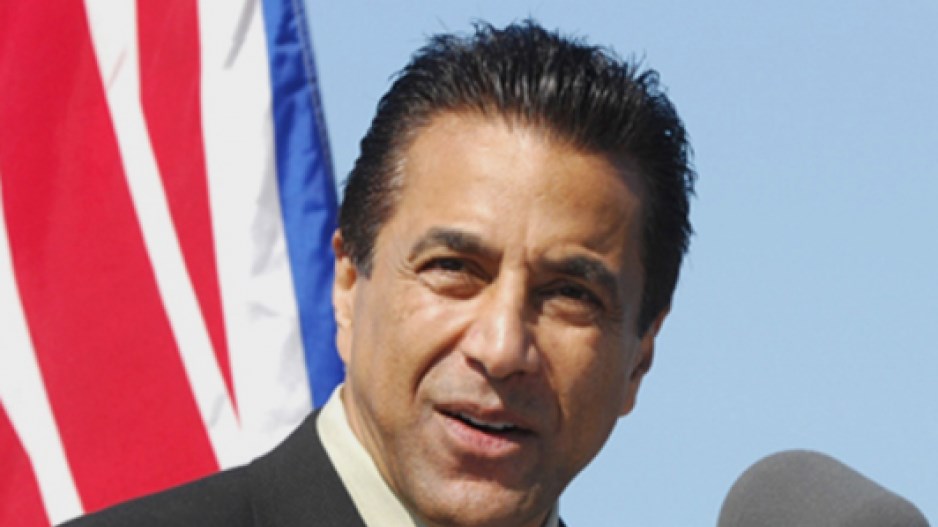Former B.C. Solicitor General Kash Heed said the two key recommendations of the Cullen Commission final report would add more bureaucracy and not curb money laundering.
Commissioner Austin Cullen’s 1,800-page report, released June 15, proposed the NDP government hire an anti-money laundering commissioner and create a new anti-money laundering squad. Heed said it would take expertise, such as dedicated prosecutors or accountants, away from other enforcement units with associated agencies.
“Where are you going to get the resources from, when you look at the fact that 30% of our police agencies just here in British Columbia are carrying vacancies right now?” Heed said in an interview. “They do not have a large pool of candidates that want to be police officers.”
Heed was in the BC Liberal government from 2009 to 2013 after serving as deputy chief of the Vancouver Police and chief of the West Vancouver Police.
He said there needs to be proper resourcing and accountability for existing agencies, including the RCMP and FINTRAC, the federal financial intelligence agency.
One of Cullen’s key findings was that BC Liberal ex-Premier Christy Clark and cabinet ministers, including Rich Coleman, did not act in a corrupt manner. They just failed to do their jobs to properly regulate casinos. Cullen’s final report said Heed testified that money laundering was not brought to his attention in any formal document or briefing during his time in cabinet or as an MLA.
“The important thing to remember here, a lot of those elected officials take their information from the bureaucrats,” Heed said. “And this is the part that really bothers me, if you've had so many different enforcement agencies, whether it's [Gaming Policy and Enforcement Branch], [Combined Forces Special Enforcement Unit], or even the local law enforcement or the [Federal Serious and Organized Crime unit] of the RCMP looking at these particular matters, you would think they would advise the bureaucracy, who would advise politicians with respect to what was going on.”
Heed said B.C.’s money laundering problem could have been tackled quicker with a judicial review, since the provincial law that enables public inquiries does’t require government to accept and implement recommendations. Cullen made 101 recommendations, but focused 538 pages of the report — almost 30% — on the gambling sector alone. Heed said that was a missed opportunity and it shows elsewhere in the report.
“[Casinos] are what I would call the low-hanging fruit, if not the fruit that's already fallen to the ground,” he said. “When you look at the bulk of the laundering of money, illicit proceeds, it's through other venues, whether you want to look at the real estate or whether you want to look at the stock market.”
There was no chapter on stock markets, but the real estate sector got 199 pages and was inconclusive about the role of money laundering or foreign investment as the primary cause of high real estate prices in B.C. Cullen suggested it needed further study. Indeed, the inquiry heavily investigated the casino sector, but did not hear from real estate or construction movers and shakers.
Heed was also disappointed that there was not more accountability and pointed to the weakness in B.C.’s law compared to Quebec’s. The four-year Charbonneau Commission on construction corruption led to charges for various public officials and businessmen.
“There's nothing that ensures that the government actually implements recommendations or follows through on the recommendations,” he said.


